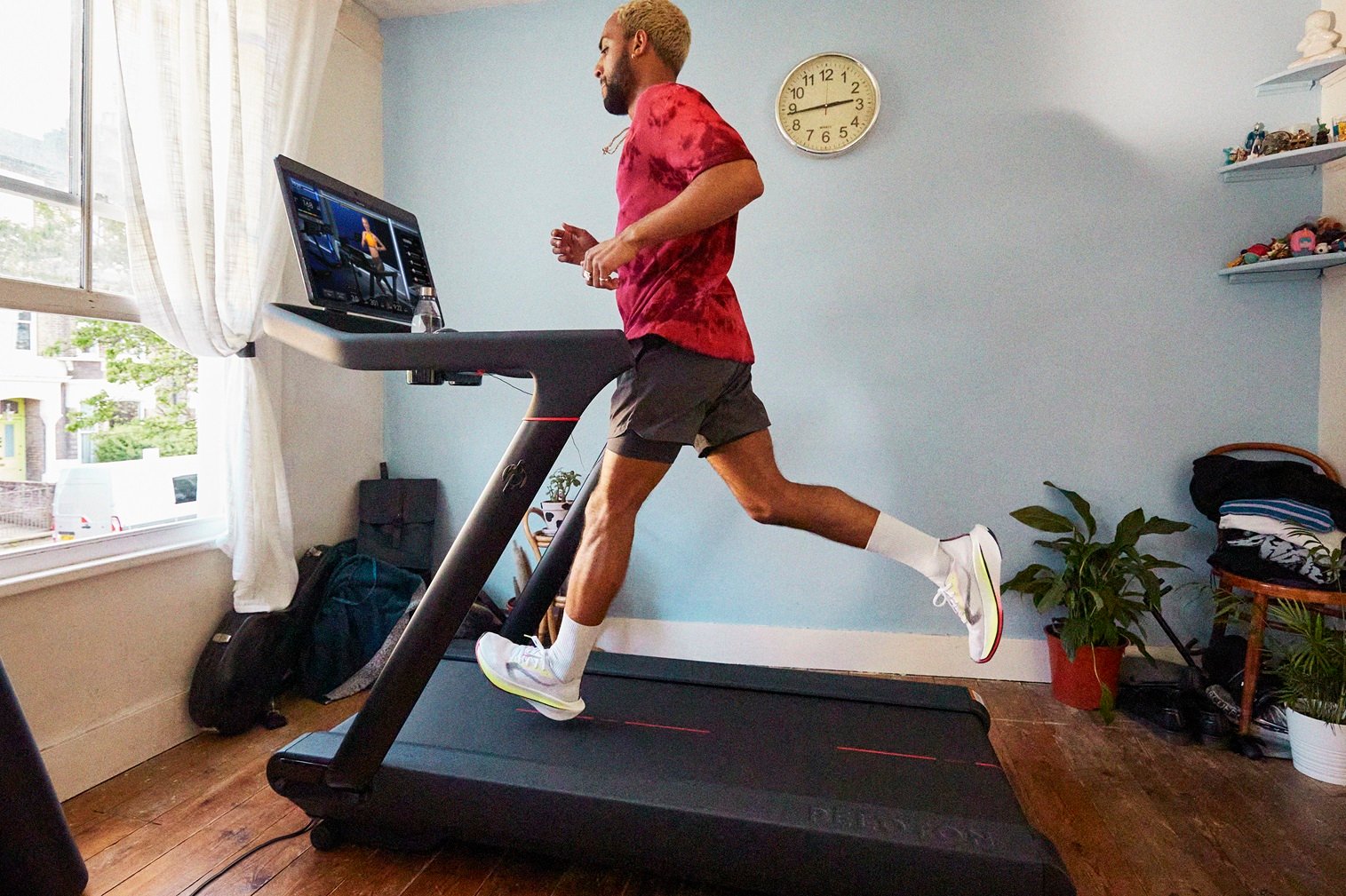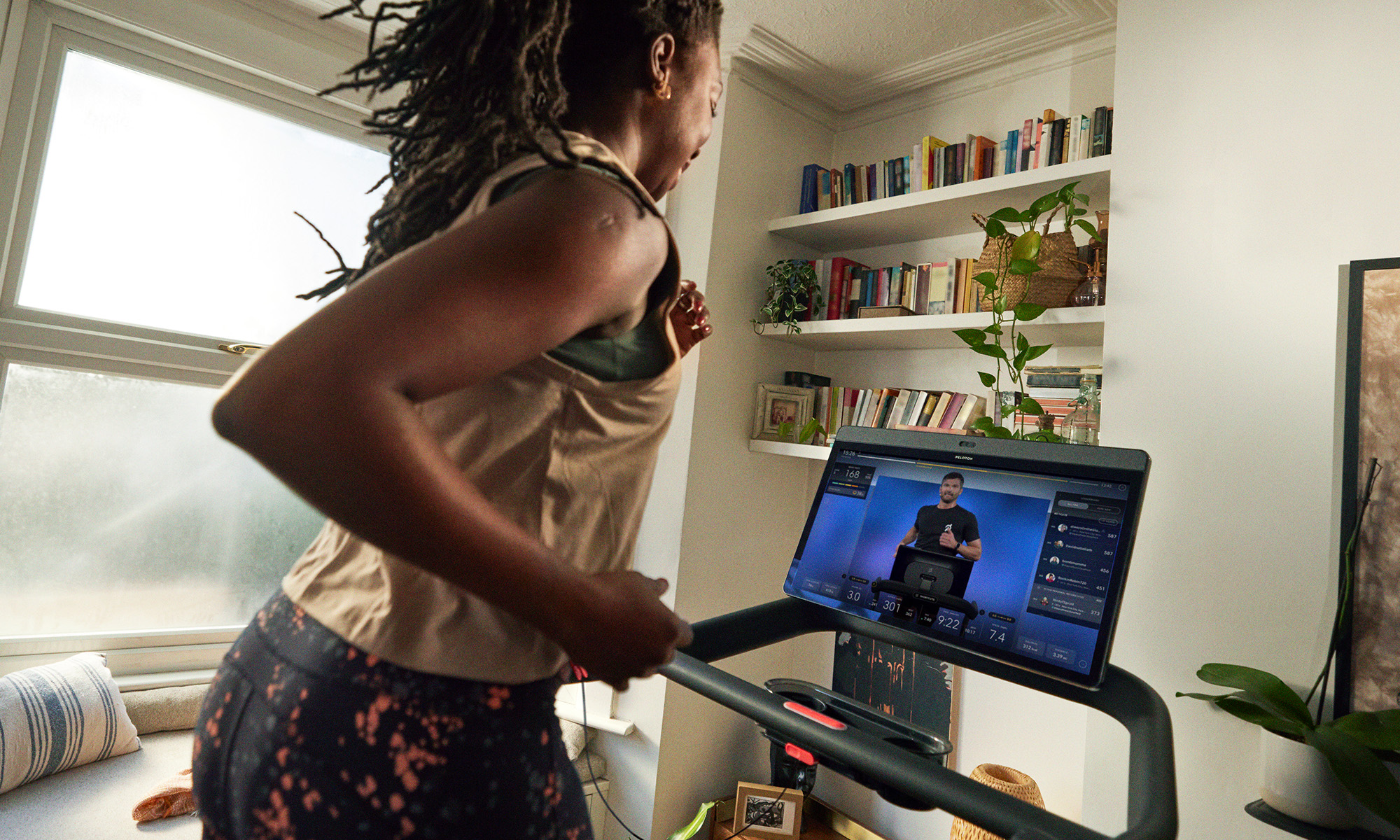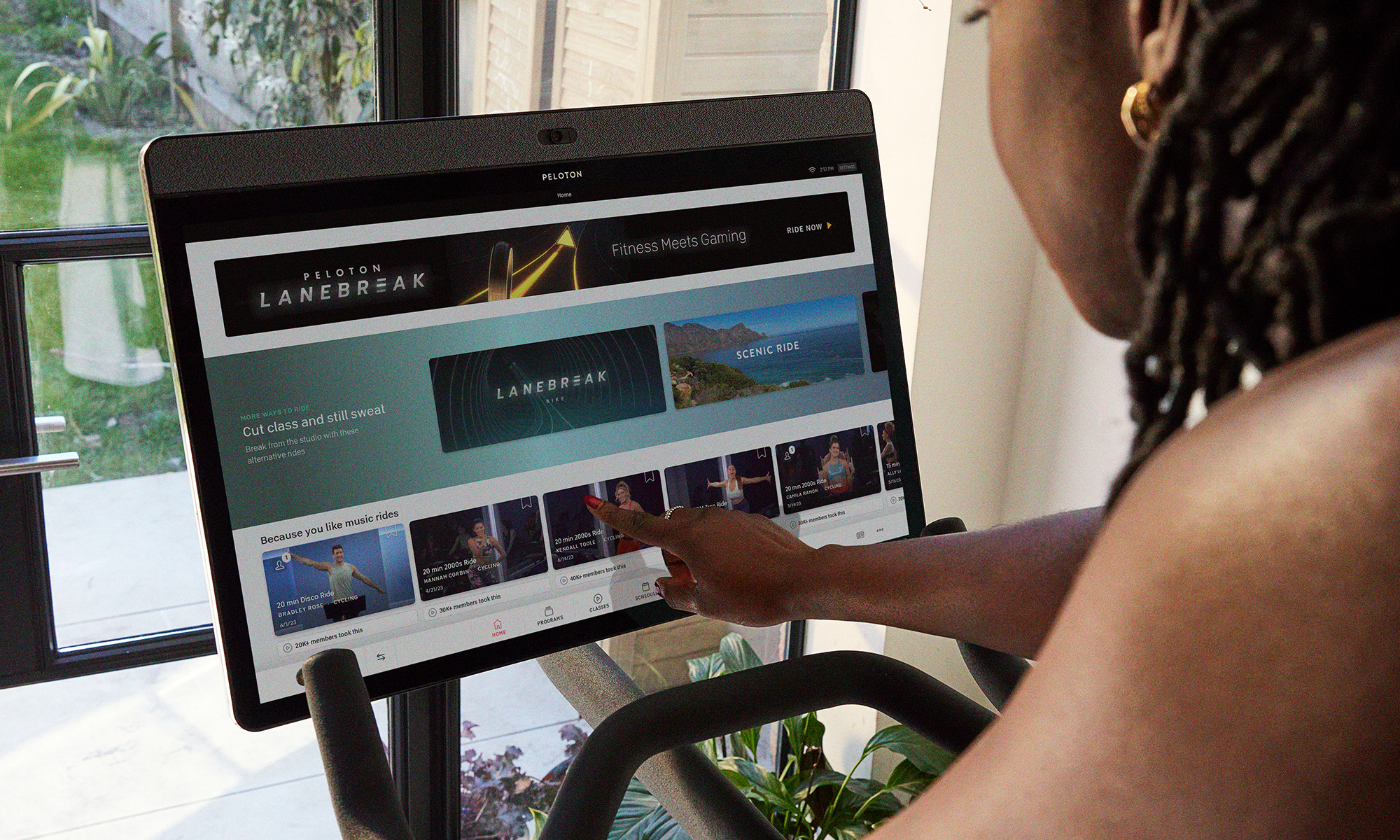The coronavirus pandemic has millions of us holed up at home with little physical contact to the outside world. Companies like Peloton Interactive Inc. (PTON +0.26%), which manufactures home fitness equipment and produces video workout classes, would seem poised to take advantage of the new normal and be great investment opportunities, right? Not so fast.

Peloton Interactive, Inc.
Detour ahead: COVID-19
Peloton announced April 6 that it would suspend live production of fitness classes after an employee in its New York production studio tested positive for COVID-19, the disease caused by the novel coronavirus that is sweeping the globe. The company made the announcement on its Peloton members-only Facebook page late April 3, but did not release an official press statement.
Peloton said that it would be deep-cleaning and disinfecting the studio. Similar precautions were expected for its London, UK production facility as well. The company was criticized for continuing production in the "ground zero" of New York City by members and others -- even after it scaled back and moved to a "closed set" with "minimal staffing" on March 14. Additional measures were taken March 16 when it "significantly scaled back our production of live classes in both studios to further limit staff needed on site," as announced on a Peloton community support page.
Peloton was further chastised by some for providing transportation for trainers and crew to and from the west Manhattan Hudson Yards location, despite its assurances that it took appropriate sanitation measures.
That week, the State of New York named Peloton Studios New York an "essential business" and approved "limited operations."
Peloton broadcasts a slate of interactive classes from studios in New York and London studios, including cycling, treadmill and strength sessions. Customers pay a monthly subscription fee for the live classes, but they will have to rely on archived programming until May.
"We have decided to pause live production at both our New York and London studios through Thursday, April 30th. In the interim, we will continue to monitor the situation as it evolves," CEO John Foley announced in a letter to members on the company's blog page.
That was bad news for many of the two million or so Peloton members who were initially attracted to the platform by the live content. On a broader scope, the coronavirus pandemic has been a financial hardship for millions worldwide — not just Peloton members — making $2,245 entry-level exercise bikes and accompanying $39 per month membership fees luxury items indeed.
In response, Foley announced easing subscription fees for members financially affected by the novel coronavirus pandemic, and extended trial memberships to 90 days.
Peloton closed its retail stores March 29 but now offers online purchasing of its exercise bike and "contact free" home delivery of fully assembled units. Its treadmill business is on hold currently because of the need for in-home setup by Peloton staff.

Source: Peloton Interactive, Inc.
Is it time for the Broom Wagon?
In cycling races, there's a vehicle that trails the riders, picking up competitors that have dropped out or fallen too far behind. They could have suffered a mechanical breakdown, or just plain suffered — or as cyclists call it, "bonking." For whatever reason, they can go no further, and the "Broom Wagon" comes along to "sweep" them up.
Investors must ask whether Peloton has reached that stage. I think so. Why? Luxury and recessions go together as well as oil and water.
It would seem logical, at least to the novice investor (like me) that a company that produces stuff to enable people to carry on their exercise routines while all the gyms are closed has a license to print money. Stockholders would reap the benefits. But just take a look at the company's stock mountain graph for YTD 2020. It looks like a run through Alpe d'Huez in the French Alps on the Tour de France.

Peloton stock YTD 2020 as of April 7 (Peloton Interactive, Inc.)
Peloton: the NordicTrack of the 2020s
Let's be honest. Peloton makes luxury niche products. Sure, it's offering financing nowadays, but I just don't think people will continue to shell out thousands of dollars for exercise bikes and treadmills for the sustainable future. This pandemic won't last forever, and neither will Peloton's demand. Once gyms open their doors and arms to returning members, people will be dying to get out of the house, and off they'll go.
Remember home elliptical machines? They were the Peloton bikes of the 1990s. NordicTrack rode a wave of popularity and booming sales and seemed to have latched onto something unprecedented. Until it wasn't. The home elliptical machine was a fad and eventually waned. The fitness and wellness industry is fad-driven, and fads burn hot and fast.
We're mired in a global healthcare crisis and a deepening recession. Millions of people are losing their jobs. Thousands of independent businesses are folding. The great irony for Peloton in my opinion is the same thing that caused it to rise — the novel coronavirus pandemic — will cause it to fall. It's unclear whether Peloton will become the proverbial "falling knife," but it would be wise to step aside.






